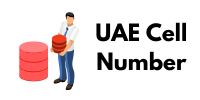Let’s be honest. There are many times when “stereotyping” people is useful to marketers. Email is one of those situations.
But don’t feel bad about placing subscribers into specific groups. It’s an important step towards creating a more relevant email experience for everyone on your list – or lists as the case may be.
Read on to understand why it’s essential to segment your mailing list before sending your next email marketing campaign, followed by eight email segmentation best practices to boost your subscriber engagement and marketing metrics.
What is email list segmentation?
First, let’s cover the basics. Segmenting your mailing list means splitting contacts into different categories based on similar characteristics. These can be behavioral patterns, demographics, geographics, or other valuable Honduras Business Email List characteristics for your brand and subscribers.
This way, instead of batch-and-blasting everyone, segmentation offers a way to personalize the email content and sending frequency for each part of your target audience.
One of the most basic examples involves
companies that are both B2B and B2C. It would make no sense at all to send to consumers. So you’d to separate those two audiences by segmenting them into two different lists.
List segmentation should be a part of your UAE Cell Number email list maintenance workflow. After segmenting your subscribers, you can use to send newsletters, product announcements, and other emails to each segment.

